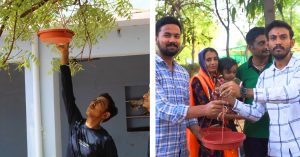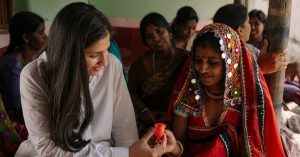How A German Woman Living In Kerala Helped 180 People Start NGOs Across The World
Driven by her passion for making a difference, Sabriye Tenberken, a blind individual from Germany, founded 'kanthari,' a training institute in Kerala. Through Kanthari, she empowers people from various backgrounds to start NGOs and create impactful social change globally.
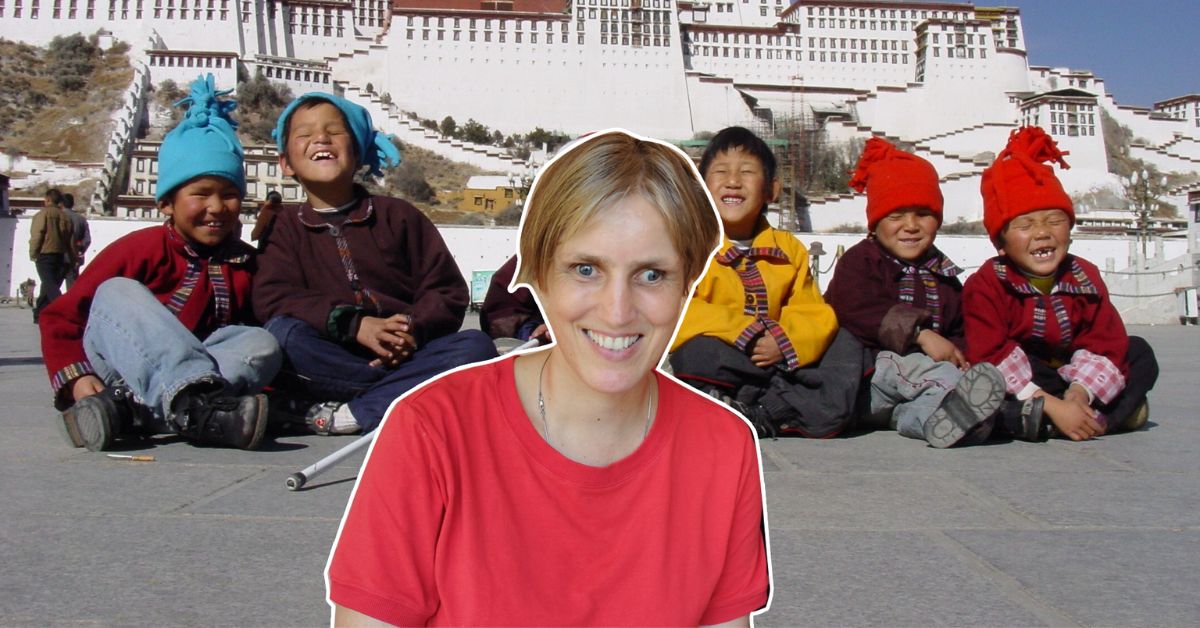
Disability creates a distinction — This was Pondicherry-based psychologist G Karthikeyan’s prime observation during the 15 years he spent working at an orphanage. Despite harmonious co-existence being a valued objective, Karthikeyan was quick to note that institutional care in India is not tailored to meet the needs of children with disabilities.
“Disabled children find it tough to integrate into mainstream society,” his learnings taught him. And more often than not, this dependency would blanket the children’s futures, causing them to stay back at the facility even past adulthood.
However, interactions with some of the disabled children led Karthikeyan to sense their eagerness to learn. If only there was a way to channel this into a project that would help these children use their skills to become independent, he thought.
Noble, though his idea was, Karthikeyan lacked the resources and formal training to set up something of this scope. But a trip through India in 2012 would be the ray of hope he needed. As he voyaged through South India, he stumbled upon ‘kanthari’ which was built on the premise of empowering people who had a dream to drive social change in their communities.
“Do you have a vision but lack the tools to start an NGO?” Sabriye Tenberken, co-founder of kanthari, had asked Karthikeyan around 13 years ago, almost reading his mind. His answer was affirmative. And since that day there has been no looking back.
Through the seven months he spent on kanthari’s Thiruvananthapuram campus, Karthikeyan’s earliest impressions were that of the endeavour being an answer to his prayers. “Often when I would tell people about my dream, they would scoff. But at kanthari, it was the opposite. Everyone would tell me my goals were achievable. Along with the right encouragement, I also got training in corporate communication, fundraising, designing a social venture, writing the concept note, pitching to investors, and speaking to the media,” he says.
At kanthari, Karthikeyan formed close bonds with his peers. Constructive criticism and accompanying motivation were always close at hand. And as he shares, there were multiple mock opportunities for budding entrepreneurs like himself to try and fail at. And this made all the difference.
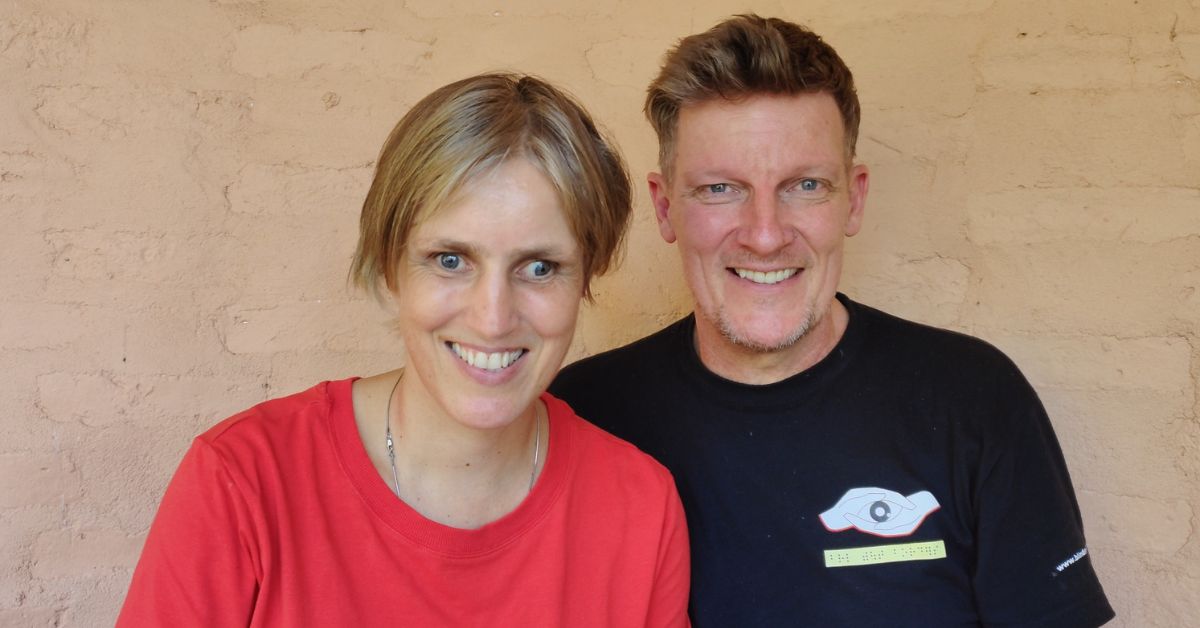
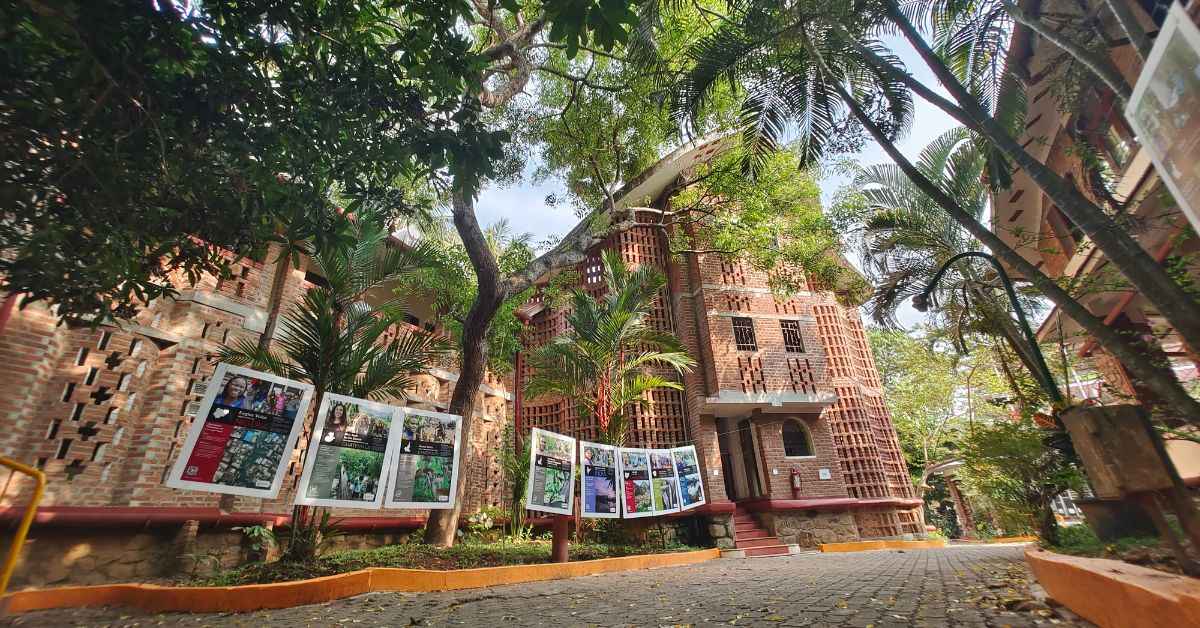
Today, Karthikeyan’s initiative ‘Sristi Village’ is a tight-knit community of changemakers who are working to improve the lives of people with intellectual and developmental disabilities. “Through a combination of education, life skills training, and agriculture, we help people who are faced with exclusion, neglect, and many other disadvantages, that would otherwise limit their effective participation in mainstream society,” he says.
From a person who was once shrouded in doubt of whether he would be able to achieve what he set out to do, to now a leader, Karthikeyan has come a long way. “His is just one story of the impact kanthari has managed to create,” emphasises Sabriye, “It is stories like these that keep me going.”
Channeling adversity into opportunity
If you were to trace the origins of Sabriye’s philanthropic and academic accomplishments — co-founding ‘Braille Without Borders Charitable Trust’ in Tibet in 1998; coming up with the Tibetan braille script in 1992; authoring four books: ‘My path leads to Tibet’, ‘Tashis neue Welt’ (Tash’s new world), ‘Die Traumwerkstatt von Kerala’ (The dream factory of Kerala), and ‘Das siebte Jahr’ (My seventh year); pioneering the social empowerment initiative kanthari and receiving a nomination for the Nobel Peace Prize in 2005 — you will agree she is extraordinary.
“I just believe dreams should be pursued,” she smiles, “Every dream has a motivation behind it.”
So, what was yours? I ask.
“I became blind at the age of 12,” she answers.
Losing her vision dramatically changed her life and with it the dynamics of her academic journey. Bullying and exclusion followed her everywhere at school. And she hated it, until one day, when she decided to ask herself, “What’s good about being blind?”
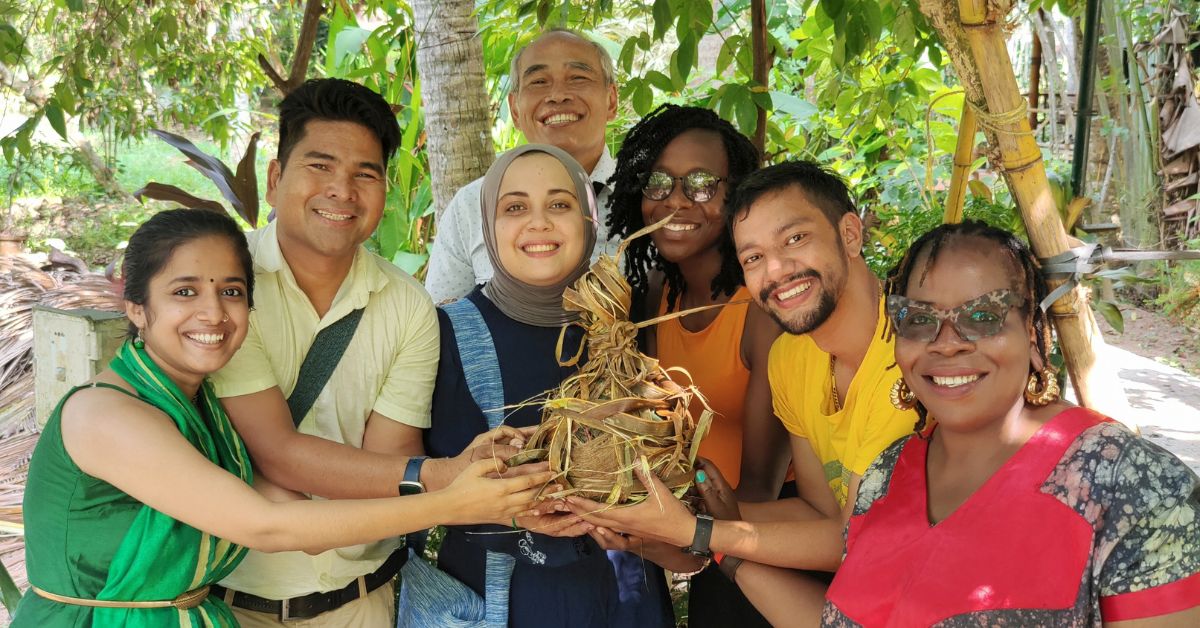
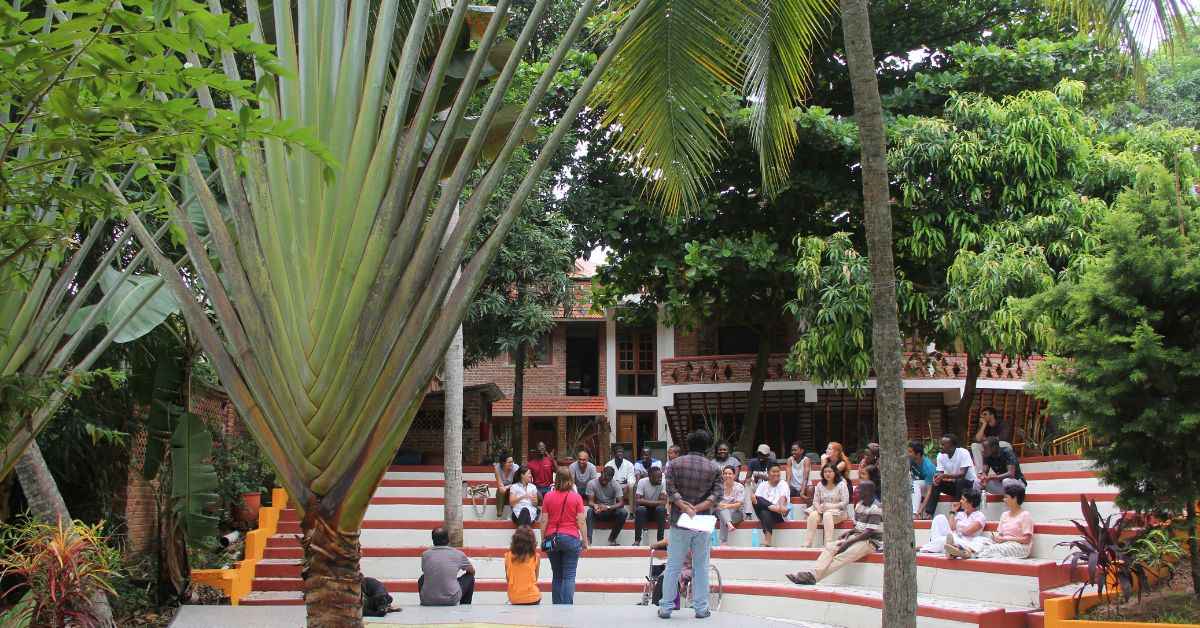
And that was the day, her perspective shifted.
It was during her higher secondary education at a school for the blind in Germany, that Sabriye learnt how a disability does not need to be equivalent to being put in a drawer by society and made claustrophobic. “At my new school, I was introduced to skiing, horse riding, acrobatics, windsurfing, and kayaking. I began to fall in love with these activities and become more confident.”
Sabriye went on to pursue Tibetology at the University of Bonn, and it was during these years that she developed the Tibetan braille script combining the principles of the braille system with the special features of the Tibetan syllable-based script. Once examined by Tibetan scholars who deemed it easily understandable, the script became the officially recognised one in braille literature.
After completing her education, Sabriye decided to pursue her dream of working with an international humanitarian network that works to save lives and build community resilience.
“But I was asked of what use would I be on the ground since I was blind. So, I decided if I couldn’t be a part of an organisation creating change, I would start one,” she shares.
And, kanthari is the realisation of that dream.
Leaders without boundaries
While the people of rural India have aspirations, what is missing are organisations that can turn these into a reality. This was what Sabriye and her Dutch engineer partner Paul Kronenberg — whom she met during her trip to Tibet in 1997 — discovered while they were researching existing entrepreneurship courses in India in 2009.
“These courses necessitated degrees. But as I see it, all one must have to start something is a dream. Degrees come second,” emphasises Sabriye.
The duo, thus set out to launch a social endeavour where anyone who had the “guts to challenge the status quo and create something meaningful to make the world a better place” would be trained and equipped with the necessary resources. The place of choice was Kerala’s Thiruvananthapuram for more reasons than one.
Not only were the backwaters, tropical climes, heavenly food, and tourism a draw, but Sabriye and Paul were more excited by the society’s openness to new ideas. Since its inception, kanthari has trained 280 participants from 55 different countries.
Of these, Sabriye says around 60 to 70 percent are running their social projects. The budding social entrepreneurs go through a rigorous one-year programme, seven months of which are spent on campus. These months are crucial for them, Sabriye notes. “They go through a very, very intense and detailed leadership impact training course where they learn everything from project planning to fundraising, to finances, to speech and presentations, social business and how to run an organisation.”
None of these concepts are taught in a theoretical way. Instead, creativity is infused into every topic. These changemakers are mentored throughout the one year not by professors but by ‘catalysts’.
“The batches we see are a mix of individuals; some have an academic background backing their work and some do not. The idea is to have them benefit from each other’s experiences,” she shares.
Last year, the youngest among the batch was 23 years old, while the eldest was 66. “Diversity is prided on,” Sabriye says.
The participants hail from across the world and mustn’t worry about expenses. Everything is taken care of by a scholarship — including food, accommodation, flight travel, trips through India, and any learning material that needs to be accessed during the programme.
Initially christened ‘International Institute for Social Entrepreneurship’, an interesting story prequels how the name changed to kanthari.
One day, during lunch, a kanthari chilli in Sabriye’s food made her gag and her eyes water. Despite its deceptive appearance, the chilli had immense power, she noticed. Wasn’t this the same case with persons who overcame adversity to create change?
Thus the name kanthari.
Elaborating on the programme outline, Sabriye says the focus is on inculcating a spirit of encouragement among the changemakers. During the participatory workshops, participants are taught budgeting, the power of storytelling, and the nuances of creating a website.
The first act follows wherein participants are guided with speech-making, presentation-making, designing the vision and mission of the NGO, questioning their own venture ideas, and trying to improve them through feedback. The next few months are centred around creating a written venture profile — which consists of a solid problem definition and a description of their solution, objectives and strategies.
What follows next is a diploma course in entrepreneurship skills development where participants undergo intensive business training and get a hands-on approach to social entrepreneurship. This is followed by a mock dive into the real world of business where participants’ public skills are polished. They are also helped with fundraising and pitch-making along with a concrete budget plan for the first six months of running the NGO.
The next kanthari course starts this April 2024.
Credit Sabriye for designing such a holistic model and she says, “Social entrepreneurship is only one of many ways to make it a better world, right?” I agree.
‘Use limitations as your springboard’
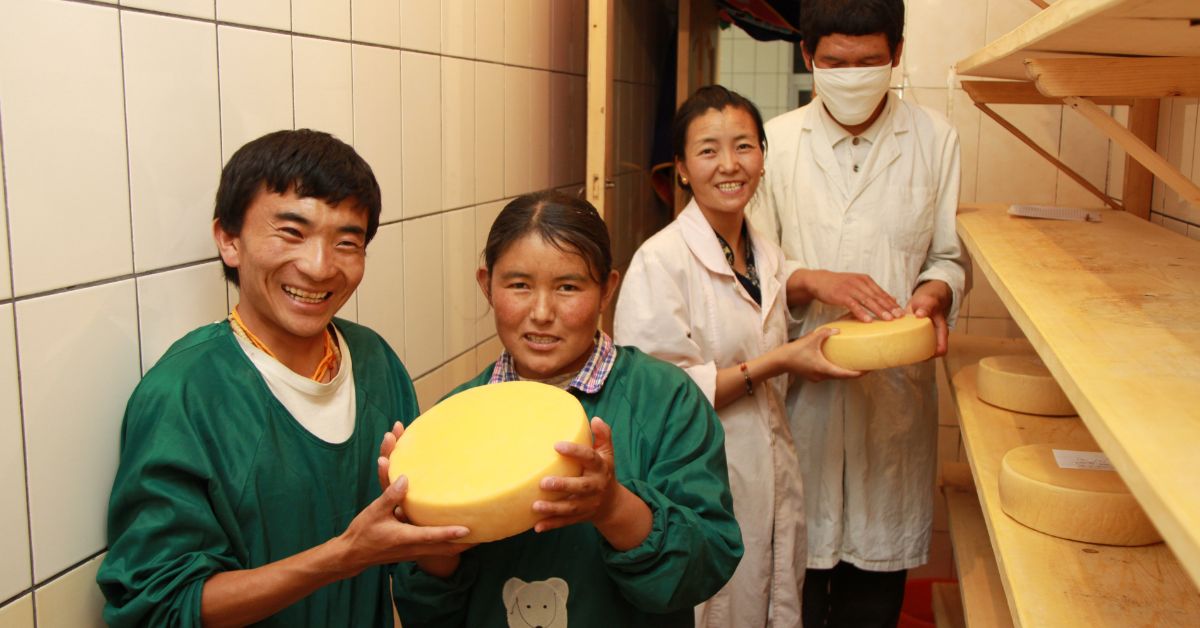
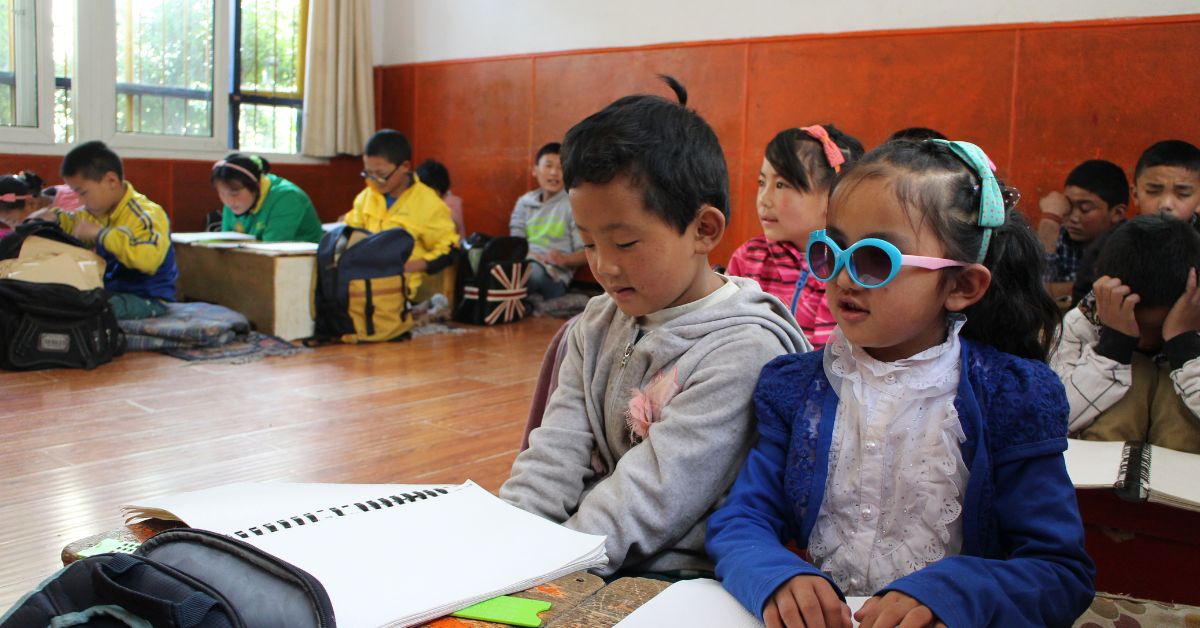
Kanthari’s flag flies high concerning the unique entrepreneurship model it has built. But Sabriye shares how none of this would be possible without the underlying learnings she was introduced to in 1997 during her trip to Tibet.
“It was this trip that taught me how limitations can be springboards that catapult you to great heights.” A beautiful manifestation of this, she says, was watching how blind kids in Tibet never saw their disability as a fault to complain about, but rather a quality to be embraced.
Armed with the knowledge of Tibetan braille, Sabriye embarked on a voyage through the snowy highlands on horseback. When asked about this unusual choice of transport, she argues, “It got me closer to the locals. I was able to have conversations while I moved from one village to the other.”
It was these excursions that gave Sabriye a window into the sorry plight of blind children in Tibet. Leading a life on the margins of society, blind children would often be ostracised, punished for not being able to see or ridiculed for being possessed by evil spirits. Seeing to it that these kids were sent to traditional schools wouldn’t amount to much, she realised.
This was the inception of the idea ‘Braille Without Borders’, an endeavour to rehabilitate and train these children so that they could sharpen their skills and work post-school. Today, the centre is a safe space for blind children to communicate with other blind people, and exchange experiences and problems they face in their respective home situations.
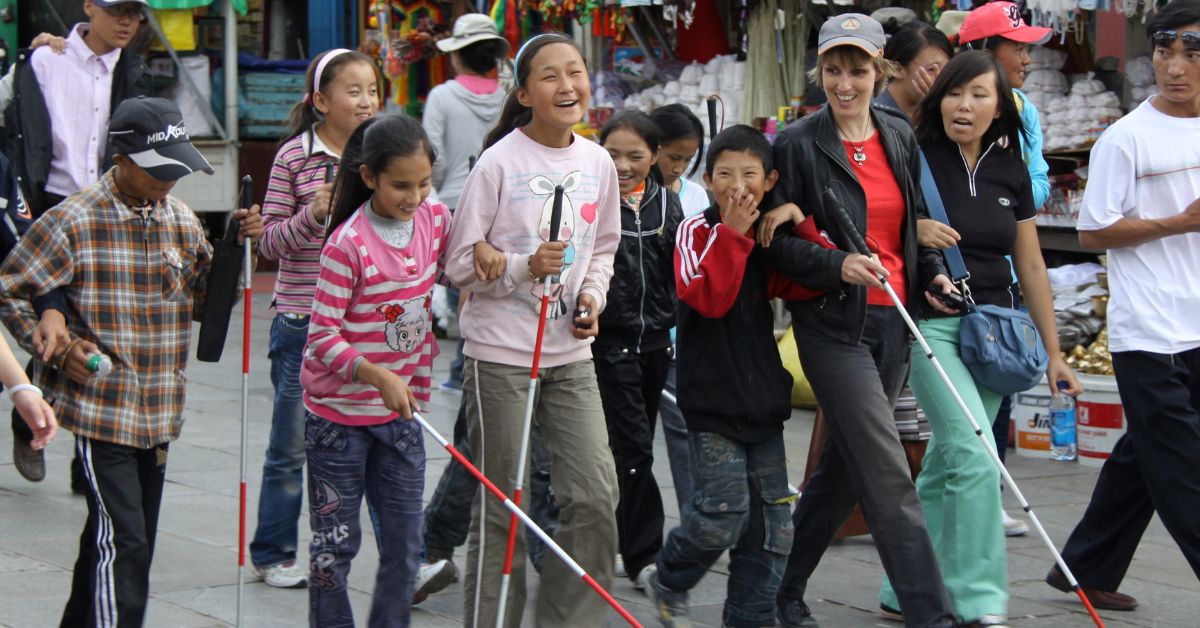
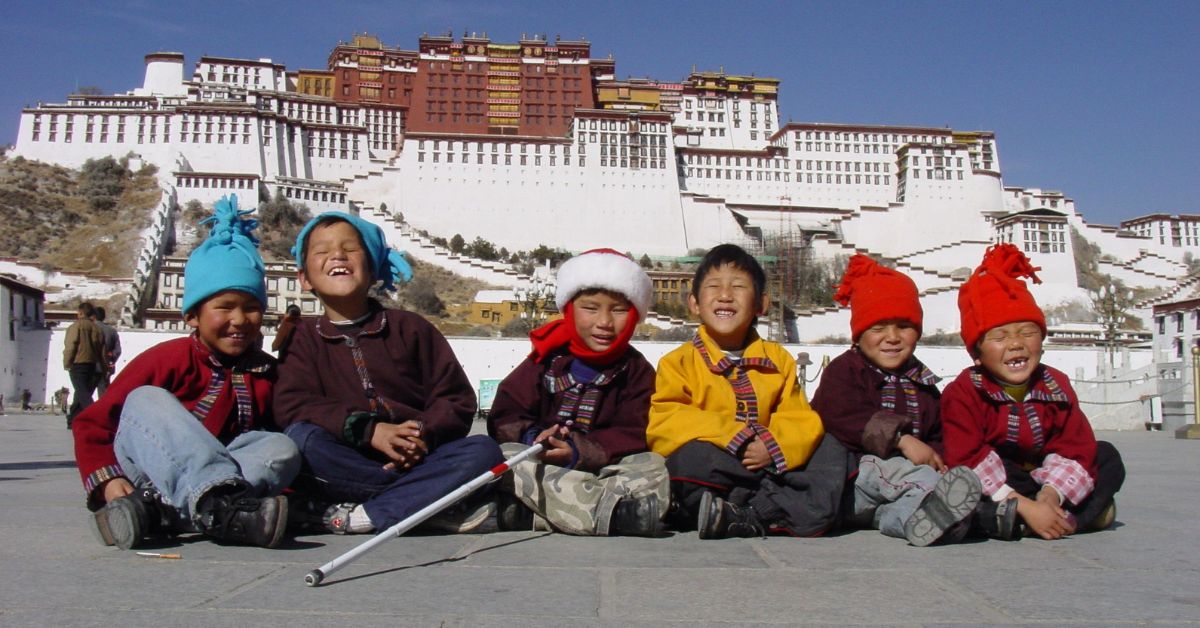
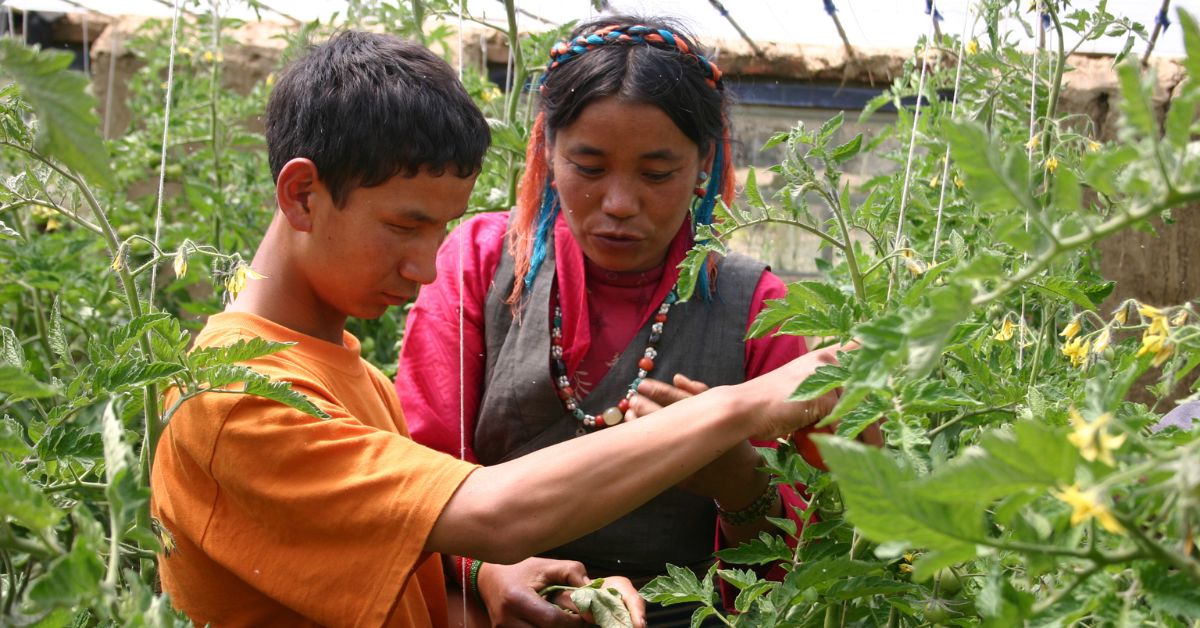
Classes included training in mobility and daily living skills — such as walking with a cane, eating with chopsticks, and training in the Tibetan, Chinese, English and mathematical braille script. The goal of the preparatory school was that after completion of the basic training, the young students integrated themselves into regular local elementary schools.
Following this, the students could opt for vocational training in Tibetan and Chinese medical massage, pulse diagnosis, and acupressure.
In May 2001, April 2002, and April 2003 a blind physiotherapist from Switzerland named Monique Assal came to Lhasa to train the trainees, and since then, several students have set up their own medical massage clinics. In addition to this, the students were trained in music, animal husbandry, cheese making, and handicraft making.
Through Braille Without Borders and kanthari, Sabriye and Paul are creating an ecosystem that fosters humanity and kindness. “Birds can fly and humans can’t. That means we are all disabled in some way. But if we were to sit and cry about it, we would never have built aeroplanes and helicopters! So no matter what the disability, I believe, it is never a limitation,” she remarks.
You can check out their work, here.
Edited by Pranita Bhat
If you found our stories insightful, informative, or even just enjoyable, we invite you to consider making a voluntary payment to support the work we do at The Better India. Your contribution helps us continue producing quality content that educates, inspires, and drives positive change.
Choose one of the payment options below for your contribution-
By paying for the stories you value, you directly contribute to sustaining our efforts focused on making a difference in the world. Together, let's ensure that impactful stories continue to be told and shared, enriching lives and communities alike.
Thank you for your support. Here are some frequently asked questions you might find helpful to know why you are contributing?






